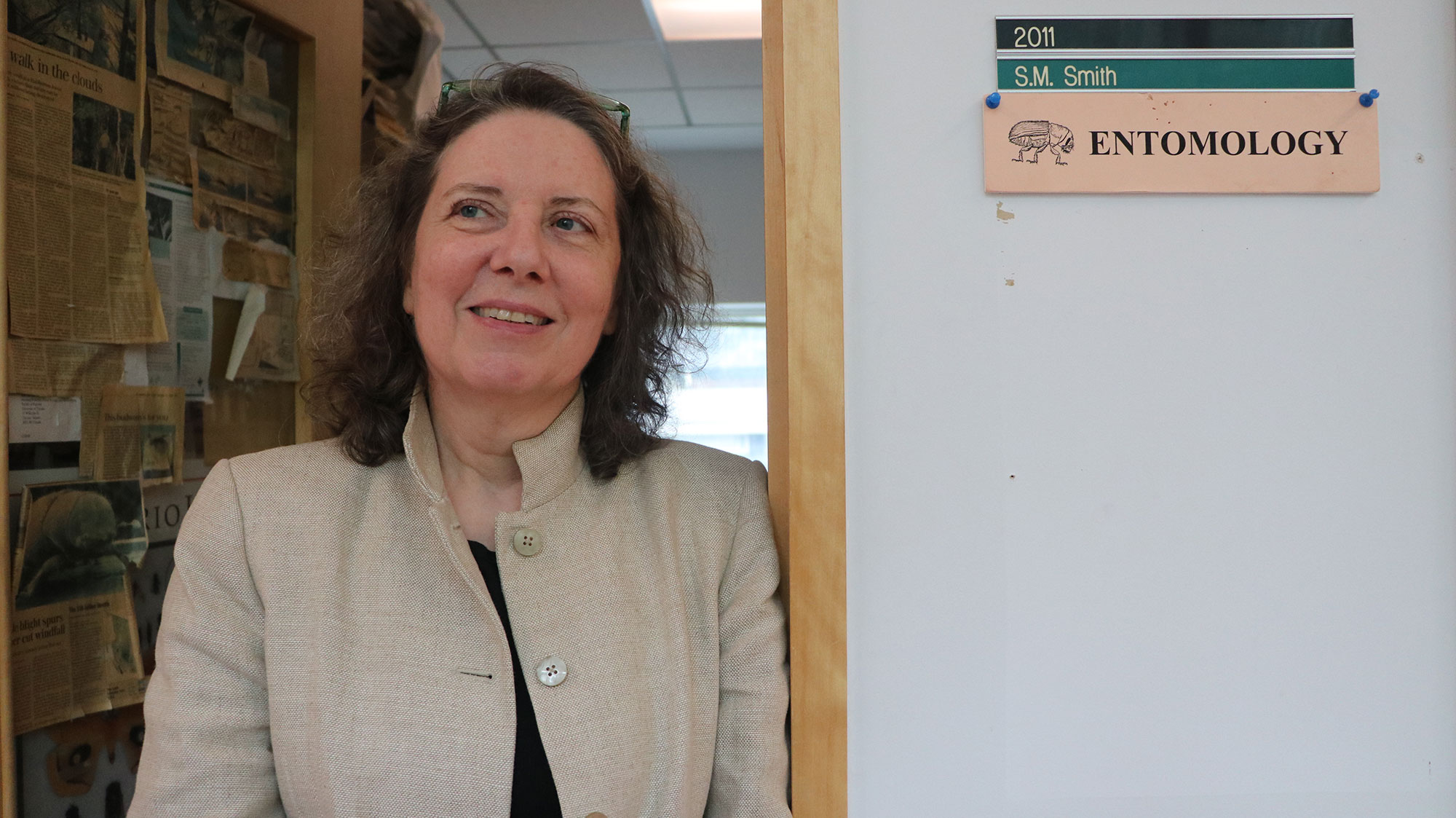
01.06.22 - Forestry’s Sandy Smith appointed to expert panel studying the use of gene-edited organisms in pest control
What are the scientific, bioethical and regulatory challenges regarding the use of gene-edited organisms and technologies for pest control?
That’s the question being studied by a multidisciplinary panel of experts assembled recently by the Council of Canadian Academies (CCA) on behalf of Health Canada’s Pest Management Regulatory Agency. Among those experts is Professor Sandy M. Smith of the Daniels Faculty’s Institute of Forestry and Conservation. The Panel on Gene-edited Organisms for Pest Control, which includes 13 others from universities across North America, convened for the first time on May 30.
“As a member of the Expert Panel, Professor Smith will be making an invaluable contribution to evidence-based policy in Canada,” says Heather McGeer, Communications Coordinator for the CCA. “It is through the hard work of expert committee members who donate their time and expertise that the CCA is able to produce high-quality assessments that the federal government and others have come to rely on to inform decision making.”
Over the past decade, advances in gene editing tools and technologies have made the process of changing an organism’s genome more efficient, thereby opening up a range of potential applications, including pest control. But while these tools have now made it possible to control insect-borne disease and invasive species, or reverse insecticide resistance in pests, the full implications of using these methods remains unclear.
“In Canada, pest control products are regulated under the Pest Control Products Act and requirements for approval are well established,” says the CCA. “However, the potential to use gene-edited organisms (e.g., mosquito vectors, agricultural pests) in pest control applications present unique scientific, ethical and regulatory challenges and considerations.”
It is these challenges, opportunities and risks that the panel will be evaluating, with the goal of producing a report that the federal government can later consult as it develops relevant policy.
In general, says McGeer, “CCA expert panels meet formally approximately five times, with lots of work in between. For this assessment, we are expecting the final report to be released spring/summer 2023.”
Based in Ottawa, the CCA is an independent, not-for-profit organization that supports evidence-based studies to inform public policy development in Canada. Over the past 15 years, it has published more than 50 studies, on subjects ranging from plant diversity to regenerative medicine. At the core of each assessment is a panel of leading experts whose knowledge and insights guide the research.
Prof. Smith, who is also the Director of Forestry Programs at Daniels, is an internationally recognized expert in the ecology and biological management of invasive forest insects in urban forest restoration and conservation. She has published over 150 journal articles and book chapters, and served as a reviewer for international journals, national NSERC committees, and scientific panels.
For more details on the Expert Panel on Gene-edited Organisms for Pest Control, including its other members, visit www.cca-reports.ca.

